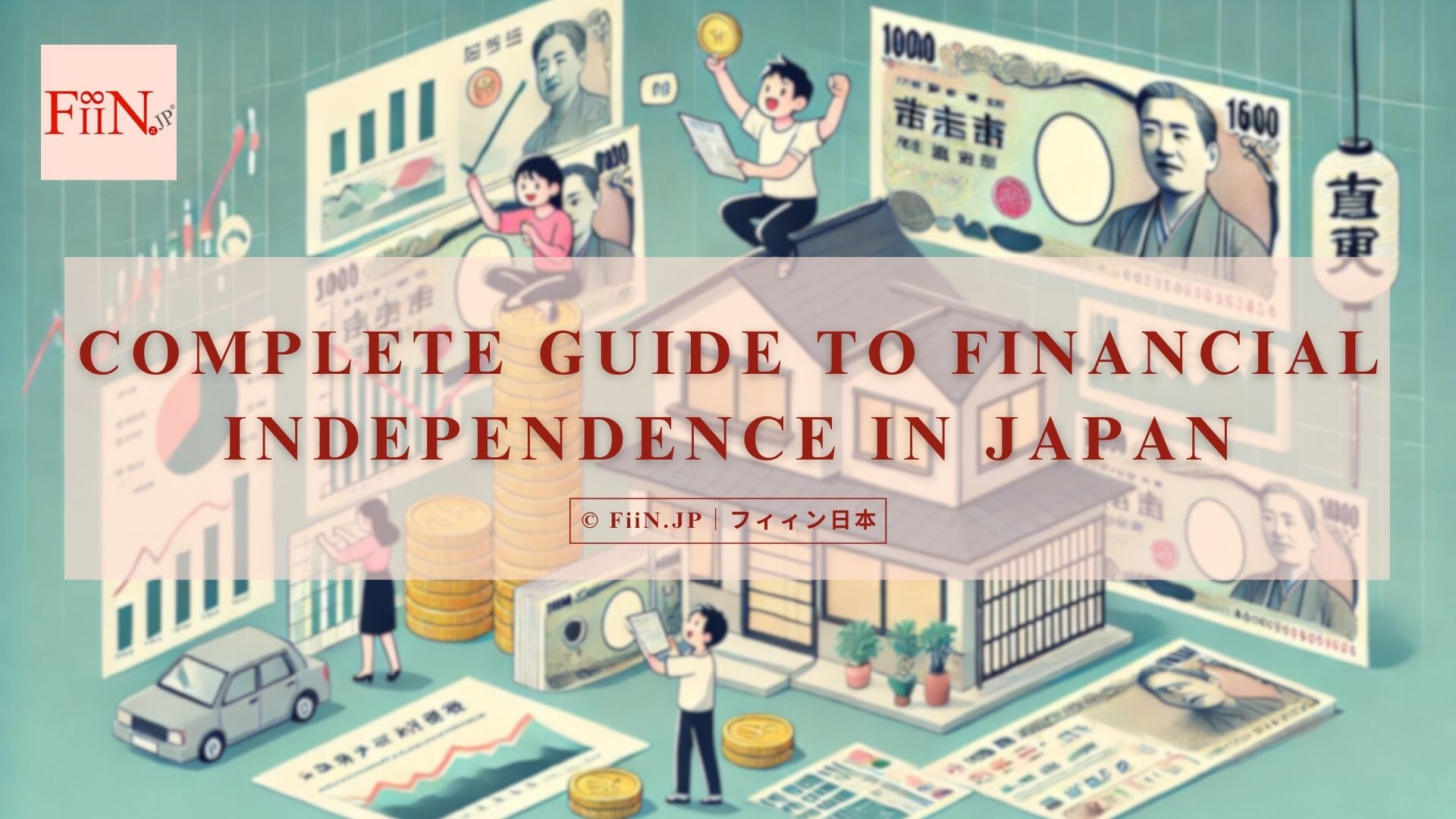Simple Guide to Financial Independence in Japan
TOKYO – Financial independence in Japan is a realistic goal with disciplined saving, smart investing, and careful planning.

KEY TAKEAWAYS:
- Set Clear Financial Goals: Determine specific lifestyle requirements, savings targets, and timelines for achieving financial independence.
- Budget and Save Aggressively: Live below your means, reduce unnecessary expenses, and maximise contributions to retirement accounts like iDeCo and Tsumitate NISA.
- Invest Wisely: Diversify investments across stocks, bonds, and real estate, and regularly review and adjust your financial plans.
English|Française|Tiếng Việt|Bahasa Indonesia|Wikang Tagalog|日本語
Summary
Achieving financial independence is a goal many aspire to but can seem particularly challenging in a country like Japan with its unique economic landscape and cultural expectations. However, with careful planning, disciplined saving, and smart investing, financial independence is attainable. This guide aims to provide a comprehensive roadmap to financial independence in Japan, covering essential strategies, tools, and resources to help you reach your financial goals.
What is Financial Independence in Japan?
Financial independence means having sufficient income to cover your living expenses without relying on employment. This income typically comes from investments, savings, and passive income sources. The ultimate goal is to ensure a comfortable lifestyle without the need to work.
Setting Life Goals
The first step towards financial independence is defining what it means to you. Set specific, measurable, achievable, relevant, and time-bound (SMART) goals. These should cover:
- Lifestyle Requirements: Determine the annual income needed to support your desired lifestyle.
- Savings Target: Calculate how much you need to save to generate that income.
- Timeline: Establish a realistic timeline to achieve your savings goal.
Breaking down these goals into smaller milestones can make the journey more manageable and keep you motivated.
Creating a Budget
A budget is crucial for tracking income and expenses, ensuring you live within your means, and maximising savings. Start by listing all your sources of income and categorise your expenses into fixed (e.g., rent, utilities) and variable (e.g., groceries, entertainment) costs. Aim to allocate a portion of your income to savings and investments every month.
Reducing Expenses
Living below your means is essential for financial independence. Here are some strategies to cut costs in Japan:
- Housing: Consider living in less expensive areas or sharing accommodation to reduce rent.
- Transport: Use public transportation, which is efficient and cost-effective in Japan.
- Food: Cook at home and minimise eating out.
- Entertainment: Look for free or low-cost activities and events.
Increasing Income
Boosting your income can accelerate your path to financial independence. Consider these options:
- Career Advancement: Seek promotions or higher-paying job opportunities.
- Side Gigs: Explore freelance work, tutoring, or other side jobs.
- Investing: Smart investments can generate significant returns over time.
Saving and Investing
Emergency Fund
Before diving into investments, establish an emergency fund to cover 3-6 months of living expenses. This fund acts as a financial safety net for unexpected expenses like medical bills or job loss.
Retirement Accounts
Maximise contributions to retirement accounts such as the Japanese iDeCo (individual-type defined contribution pension plan) and Tsumitate NISA (in Japanese) (a tax-advantaged investment account). These accounts offer tax benefits and can significantly boost your retirement savings.
Investment Strategies
Diversified Portfolio: Invest in a mix of stocks, bonds, and mutual funds to spread risk and potential returns.
Real Estate: Consider investing in rental properties or real estate investment trusts (REITs) for passive income.
Passive Income Streams: Explore royalties, dividends, and other sources of passive income.
Selecting Investment Platforms
Choose a reliable securities platform such as SBI Securities or Rakuten Securities, which support NISA and iDeCo accounts and offer a wide range of investment options.
Debt Management
Minimise high-interest debt such as credit card balances. Focus on paying off these debts first to reduce interest payments and free up more money for savings and investments.
Retirement Planning
Use the 25x rule to calculate your retirement savings target. Multiply your desired annual retirement income by 25 to determine how much you need to save. For example, if you need ¥5,000,000 annually, your target savings should be ¥125,000,000.
Creating a Backup Plan
Life is unpredictable, so it’s crucial to have a backup plan. This might include:
- Insurance: Invest in health, life, and disability insurance to protect against unforeseen events.
- Alternative Income Sources: Develop skills or businesses that can provide income if your primary job is lost.
Staying Informed and Consistent
Consistency is key to achieving financial independence. Regularly review and adjust your financial plan to stay on track. Keep informed about changes in the financial landscape, tax laws, and investment opportunities.
Conclusion
Financial independence in Japan is a realistic goal with disciplined saving, smart investing, and careful planning. By setting clear goals, creating a budget, reducing expenses, increasing income, and investing wisely, you can secure a comfortable and independent financial future.
References
- “Retire in Japan: A comprehensive guide for foreigners,” Japan Dev.
- “10 Steps to Financial Independence in Japan,” Tyton Capital.
- “Guide to Investing while Living in Japan,” Alex Kwa.
- “How to Reach Financial Freedom: 12 Habits to Get You There,” Investopedia.
- “Japan’s Increasingly Attractive Financial Markets: Promoting Japan as a Leading Asset Management Center,” JapanGov.
- “Financial Independence: The Ultimate Guide to Claiming Your Financial Freedom,” Fiology.

